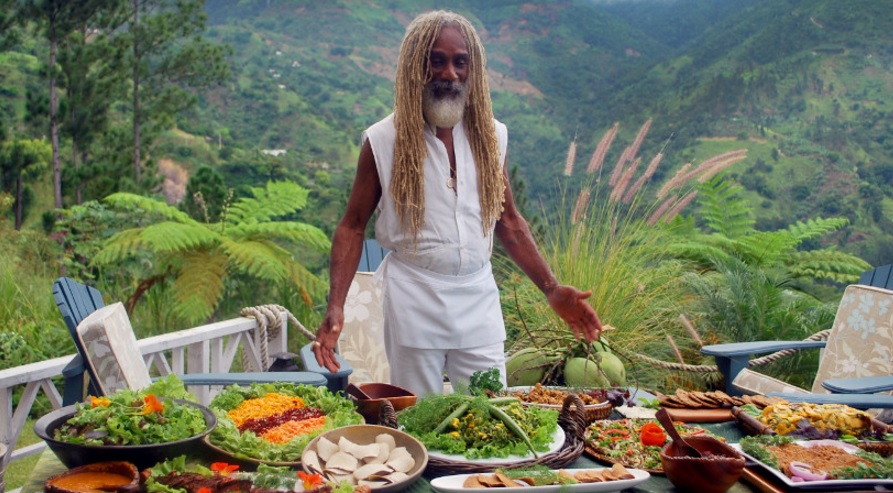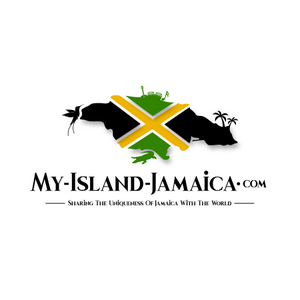Subscribe for all my updates and don't miss a thing! Sign me up!
Why Do Jamaicans Say Babylon?
Sharing Is Caring! Share this awesome content with your friends now.
by Sheree-Anita Shearer | Associate Writer
“Babylon System is a vampire is”, a line in Bob Marley’s popular song “Babylon System”. But that isn’t the only Reggae song that speaks of the “wickedness” of Babylon, and it is a common term used by Jamaicans, especially Rastafarians. But what does it even mean?
New! Take a piece of Jamaica with you💃!
Savour the memories! Now you can get your authentic Jamaican souvenir items, as well as traditional Jamaican herbs, spices and housewares on our popular e-store. Click Here to learn more.
And, if you ever need a trustworthy and knowledgeable local guide, consider booking a private tour with us!
The term "Babylon" is used by Jamaicans to contrast their experience of immigration to the Americas with the transport of Jews to Babylon during the Babylonian captivity.
Babylon alludes to both the location of captivity and the system of power that maintains them there. It can also be applied to commercial and imperial powers, including governmental entities and businesses.
Rastafarians use the terms "The State" and "The System" interchangeably because they believe that the present tyrannical governments and those who orchestrated the slave trade are manifestations of the same imperialist evil.
Babylon is thought to actively work to oppress and exploit everyone in the world, especially those of African ancestry. According to popular belief, Babylon forbade smoking marijuana because it is a sacred plant that helps people see the truth.
Thirdly and the most popular use of Babylon in Jamaica, is to refer to police officers, specifically those who are believed to be included in corrupt activities.
Concepts that explain Babylonians
- Hammurabi’s Code - In prehistoric Mesopotamia, Hammurabi served as the sixth ruler of the city of Babylon. The so-called Hammurabi's Code, which contained 282 laws governing family relationships, criminal and civil laws, trade, ethics, and other facets of ancient life, was drafted around 1786 B.C.E. His code was inscribed on a stone tablet and displayed for all Babylonians to see.
Reggae music and Rastafarian culture are significant to Hammurabi's Code for a variety of reasons. First, there appears to be a relationship between the first written laws ever recorded on the globe and the laws that so many contemporary Rastafarians believe to be unfair and a component of the greater Babylonian system.
The Hammurabi Code is known for being the first agreement of its sort. According to some, most laws that govern how we behave now are descended from the initial regulations that Hammurabi drafted. Although there is an obvious historical distinction between the colonial injustices of 20th-century Jamaica and the laws of Hammurabi, every written law has a tremendous impact on people's lives, whether it be in Babylon or Jamaica.
It's possible that Hammurabi had the best intentions although his punishment for crimes was excessive. He declared, "to promote the welfare of the people, I, Hammurabi, the devout, god-fearing prince, cause justice to prevail in the land by destroying the wicked and the evil, that the strong might not oppress the weak." For instance, hitting your son was punishable by having your forearm amputated. - Exile of the Jews - Because of the historical events of the Babylonian exile under King Nebuchadnezzar II, Rastafarians associate Babylon with evil. Nebuchadnezzar II led his mighty army westward to strengthen Babylonian authority in Syria and Judah, hoping to carry on his father's legacy. In 586 BCE, Nebuchadnezzar overthrew the Judahite monarchy.
Throughout his reign, Nebuchadnezzar encountered numerous local uprisings, particularly in Judah. As a result, Jehoiakim, the then-king of Judea, was overthrown by Nebuchadnezzar in 587 BCE.
King Nebuchadnezzar burned down the most significant Temple in Jerusalem as well as the city of Judah's royal palace. Nebuchadnezzar gave the command to exile influential people and a sizable section of the Jewish community to Babylon. Another 70 to 80 elite citizens were also executed. Three waves of exile from Babylonia took place. In three waves, 4,600 Jews were exiled to Babylon, according to Jeremiah (52:28–30).
Between 14,000 and 18,000 persons, including women and children, were banished. Jerusalemites were permitted to engage in activities that would appear to be typical of a happy existence while in exile, such as farming and building riches, as well as getting married and starting families.
The Babylonian exile, which was a time of persecution and the loss of cultural and theological independence, represents a terrible moment in Jewish history although exiles generally experienced a tranquil dislocation. Understanding the significance of Babylon to the experience of the Jamaican people requires a study of Jamaican history.
The Arawaks, a group who established all over the island in approximately 600 C.E., are said to have been Jamaica's first recorded occupants. Fishing and corn cultivation were the Arawak people's main sources of income.
Their population in several communities was reportedly close to 60,000. In 1494, when Christopher Columbus arrived in Jamaica, the island became a Spanish colony.
Juan de Esquivel, a Spanish colonialist, founded the first town and started enslaving the Arawaks in 1509. By the late 16th century, the Arawak were extinct due to a combination of factors, including European sickness, brutal slave labour, and the choice to commit suicide rather than be sold into slavery.
European immigrants started bringing Africans to replace the Arawaks as slaves because there was no native population. Admiral William Penn and General Robert Venables launched an English-inspired assault on Jamaica on May 10, 1655.
The Spanish surrendered, released their slaves, and fled to Cuba, although they ultimately successfully took control of the island.
The name "Maroon" was given to the group of liberated Spanish slaves. In the Jamaican mountains, the Maroons lived openly in rebellion against British control.
They earned the moniker "wild and furious ones" and are regarded as some of the earliest anti-colonialist rebels.
Babylon may have different specific meanings to different people and their situations, but overall Babylon represents a feeling or sense of injustice, oppression and unfair treatment, and will remain something that Jamaicans, especially Rastafarians, will always take a strong stance against it.
Sharing IS Caring! Please help me get the message out by sharing this article with your friends on social media (links below). Thnx ;-)
If you found this page useful, please consider subscribing to my weekly newsletter, to get even more.
It tells you each week about the new information that I have added, including new developments and great stories from lovers of Jamaica!
Return to Jamaican Facts from Why Do Jamaicans Say Babylon?
Return to My Island Jamaica Homepage from Why Do Jamaicans Say Babylon?
References & Sources For Why Do Jamaicans Say Babylon?
- Babylon slang expression (no date) Babylon slang expression | Learn English. Available at: https://preply.com/en/question/babylon-slang-expression (Accessed: November 24, 2022).
- Works cited (no date) Julie Seger. Available at: https://debate.uvm.edu/dreadlibrary/Seeger1.htm (Accessed: November 24, 2022).
Why Do Jamaicans Say Babylon | Written: November 24, 2022
New! Get My Latest Book👇🏿
|
You asked, I've answered! You no longer need to save for months or years, to enjoy paradise! I spilled the beans! sharing my top tips on finding cozy accommodations and secret gems, only the way a native could! Click Here to pick it up on my e-store and start saving now! |
See The Best Of Jamaica - In Videos!
|
My channel reaches over 140,000 subscribers worldwide and has leveraged over 11 million views, sharing, what I call 'The Real Jamaica'. Subscribe today and join our family of viewers. |
Read More ...
New! Experience The REAL Jamaica!
Book Your Private Tour here and experience Jamaica the way we (locals) do!
P.S. Didn't find what you were looking for?
Still need help?
Click Here to try our dependable and effective Site Search tool. It works!
Or, simply click here and here, to browse my library of over 500 questions and answers! Chances are someone already asked (and got an answer to) your question.















New! Comments
Have your say about what you just read! Leave me a comment in the box below.